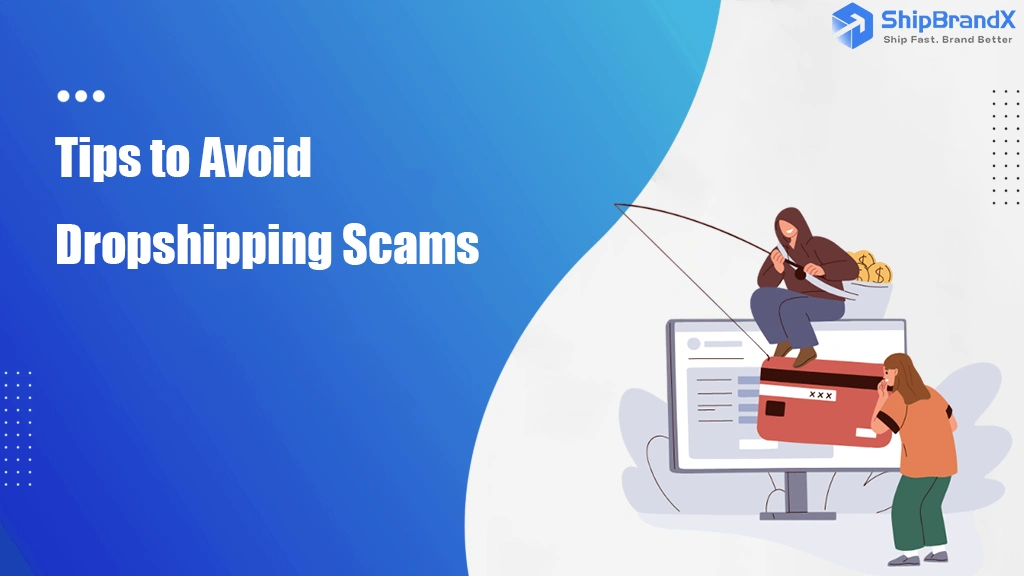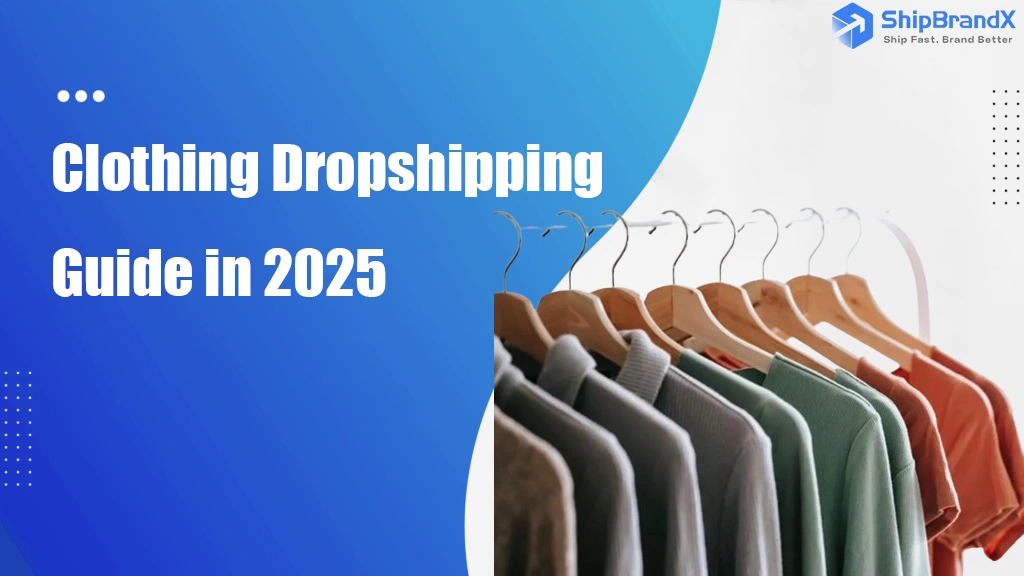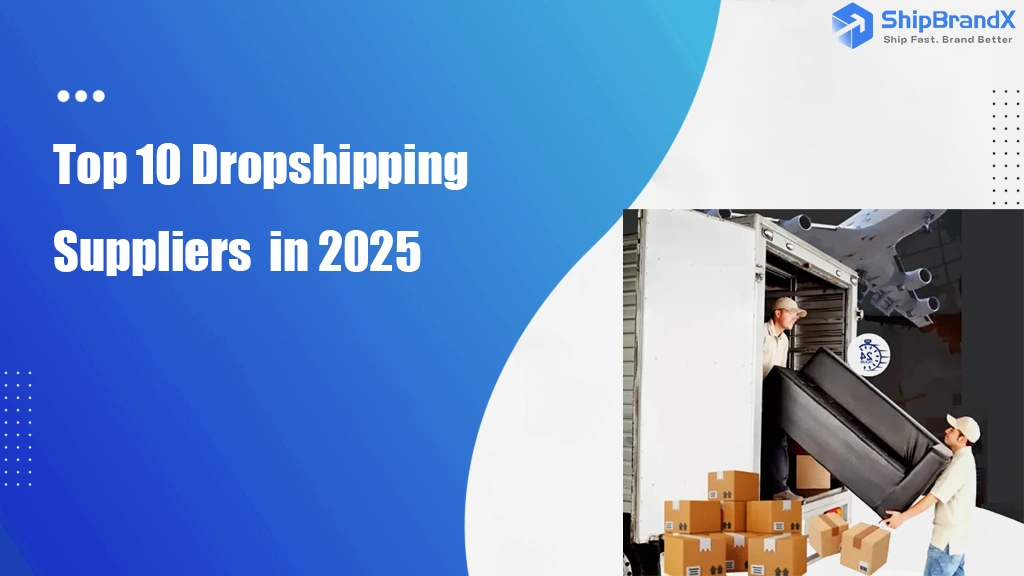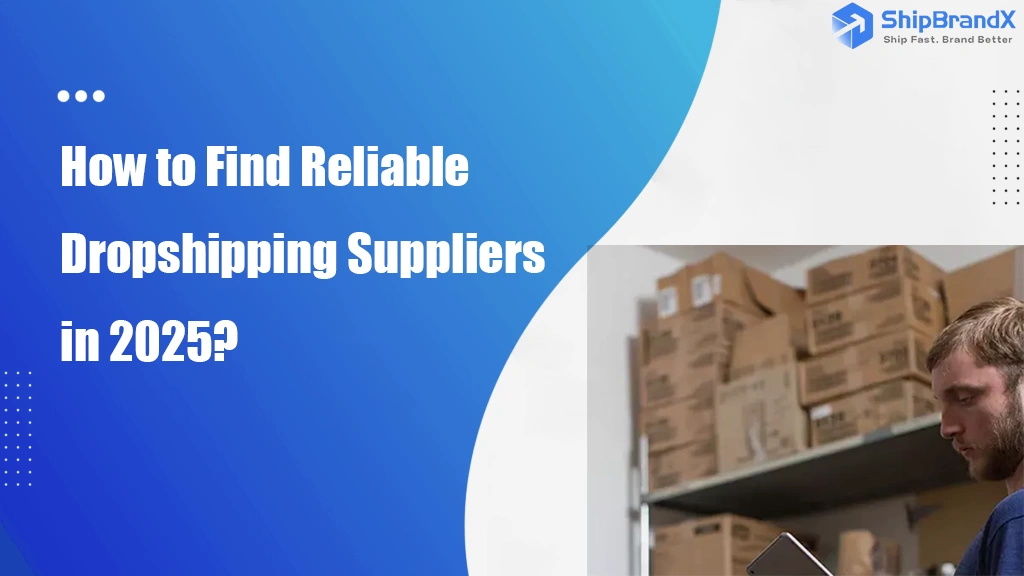Tips to Avoid Dropshipping Scams

Dropshipping scams are more common than you might think, and they can seriously harm your business. Did you know that 98% of people worry about shopping on online marketplaces? Many fear fake products, hidden fees, or even losing their money. Less than 30% of Americans feel confident spending over $100 online without checking the seller first. These scams prey on trust and can leave you frustrated and out of pocket. Staying informed is your best defense. When you know what to look for, you can protect yourself and your business from falling into these traps.
What Are Dropshipping Scams

Dropshipping scams trick people who want to start online businesses. They promise quick money with little work, but that’s rarely true. Some scammers sell wholesale suppliers lists that are fake or unreliable. Instead of real companies, you end up with middlemen charging high fees. This leaves you with very small profits.
Other scams pretend to be work-from-home jobs. They use flashy ads and fake reviews to attract you. But later, you deal with bad products or no customer support. In 2019, Gimlet Media found many dropshippers made no money, despite big promises. Buzzfeed News also reported cases where sellers used cheap goods from overseas. This led to upset customers and money losses for the sellers.
How Do Dropshipping Scams Work
These scams take advantage of your trust and inexperience. Here’s how they usually happen:
Fake Supplier Lists: Scammers sell directories of “trusted suppliers.” These suppliers are either fake or just middlemen with high prices.
Fake Products: Some scammers sell branded items at super low prices. After paying, you get fake goods or nothing at all.
Extra Fees: You might join a service and find hidden costs, like subscriptions or high shipping fees, cutting into your earnings.
No Delivery: You place an order, but the products never show up. This leaves you with angry customers and refund problems.
These tricks hurt your business and ruin your reputation. Customers lose trust when they get bad products or face delays.
Common Types of Dropshipping Scams
Fake Suppliers
Fake suppliers are a big problem in dropshipping. These scammers pretend to be wholesalers and offer “cheap” products. After you pay, they send bad items or nothing at all. Some even charge fees for fake supplier lists, which real wholesalers don’t do.
How to spot them:
They won’t sign contracts or share clear rules.
Their contact details are unclear or missing.
They promise easy money with little work.
These scams take advantage of your trust. If a supplier isn’t honest or clear, it’s a warning sign. Always check if a supplier is real before making deals.
Hidden Fees
Hidden fees can quietly take away your profits. Some suppliers show low prices but add extra costs later. These include high shipping fees, subscriptions, or handling charges.
Picture this: You find a supplier with a great deal. After ordering, surprise fees appear and lower your earnings. Worse, some suppliers say items are “in stock” but don’t have them, leaving you stuck.
To avoid this, ask for a full list of costs upfront. Clear pricing helps protect your business.
Counterfeit Products
Fake products can harm your store quickly. Some scammers sell fake branded items at cheap prices. Customers get these bad products and lose trust in your store. You might even face legal trouble.
Watch for these signs:
Suppliers offering branded goods at unreal prices.
Reviews that seem fake or overly positive.
Samples that don’t match the real product.
Selling fake items hurts your business and reputation. Always check if products are real before selling them.
Non-Delivery of Goods
Not getting goods is a very upsetting dropshipping scam. Picture this: you set up your store, promote items, and get orders. But the supplier doesn’t send the products. You now face angry customers, refund demands, and a damaged reputation.
This happens because dropshipping depends on third-party suppliers. Some promise fast shipping but don’t deliver. Others send fake items or nothing at all. Long delivery times also upset customers, causing complaints and chargebacks.
Why does this scam happen often?
Chargebacks: Customers ask for refunds when orders don’t arrive or seem misleading.
Supplier Problems: Bad suppliers delay or fail to send orders.
Customer Trust: Slow shipping makes customers doubt your store, even if it’s not your fault.
To prevent this, check your suppliers carefully. Read reviews, ask for references, and order samples to test them. If a supplier has delays or complaints, find another one.
Pyramid Schemes
Pyramid schemes pretend to be dropshipping but are scams. They promise big money with little effort. Instead of selling items, they push you to recruit others into the scheme.
Here’s how they trick you:
You pay a fee to join.
You’re told to recruit others, who also pay fees.
The focus is on recruiting, not selling products.
These schemes fail fast because they need constant new members. When people stop joining, the money runs out, leaving everyone at a loss.
To spot pyramid schemes, look for businesses that care more about recruiting than selling. If earning money depends on adding members instead of selling items, it’s likely a scam.
Tips to Avoid Dropshipping Scams
Research Suppliers Thoroughly
To avoid dropshipping scams, start by learning about your supplier. Picking the wrong one can harm your business. Doing research now can save you trouble later.
Check their reputation first. Look for reviews from other buyers from Trustpilot. Do people complain about late shipping or bad products? If yes, that’s a warning sign. Also, confirm their business is registered. Real suppliers have licenses and will share them if asked.
Here’s a simple checklist to check suppliers:
Look up their online reputation.
Confirm their business registration and licenses.
Make sure their website is secure.
Read reviews from other customers.
Order Product Samples
Before working with a supplier, order product samples. This helps you check their product quality and shipping process. Selling bad items can upset your customers, so test first.
When the sample arrives, inspect it carefully. Does it match the website description? Is the quality good enough? If not, it’s better to know now than after ordering in bulk.
Why samples are important:
You can check product quality yourself.
Test their shipping speed and packaging.
Avoid selling fake or poor-quality items.
Tip: If a supplier won’t send samples or charges too much for them, it’s a red flag. Good suppliers usually provide samples to new partners.
Use Secure Payment Methods
When paying suppliers, always use safe payment methods. Scammers prefer wire transfers or cryptocurrency because they’re hard to trace. Once paid, it’s nearly impossible to get your money back.
Instead, use trusted options like PayPal or credit cards. These offer buyer protection, so you can dispute charges if needed. They also keep your financial details secure.
Here’s a comparison of payment methods:
Payment Method | Security Level | Buyer Protection | Recommended? |
|---|---|---|---|
Wire Transfer | Low | None | No |
Cryptocurrency | Low | None | No |
PayPal | High | Yes | Yes |
Credit Card | High | Yes | Yes |
Tip: ShipBrandX recommends using payment methods that protect your data. This keeps your money safe and builds trust with suppliers.
Verify Business Licenses
Before working with a supplier, check if they’re a real business. Verifying licenses is an easy way to avoid dropshipping scams. A real supplier will have legal documents to prove they’re legitimate. If they can’t show this, it’s a big warning sign.
Ask for their business license or registration number. Honest suppliers share this information without hesitation. Once you get it, confirm it with the right government office. This step may take time, but it’s worth it for your safety.
Here’s a simple checklist to verify licenses:
Request the supplier’s business license or registration number.
Check the details in official government records.
Watch for mismatched names or expired licenses.
Check Reviews and Testimonials
Reviews and testimonials show what others think about a supplier. They help you understand their reputation. Before choosing a supplier, spend time reading reviews.
Start by searching online. Look for feedback on sites like Trustpilot or Google Reviews. Notice patterns in the comments. Do people complain about late deliveries or bad products? If yes, avoid that supplier.
Also, check testimonials on the supplier’s website. These might be biased but can still provide useful details. If possible, contact other businesses who worked with the supplier. A quick chat can reveal their reliability.
Avoid Unrealistic Offers
If an offer seems too good, it’s likely fake. Scammers use promises of huge profits or super low prices to trick you. These deals are made to rush you into bad decisions.
For example, a supplier might claim they sell branded items at very low prices. Or they promise quick success with no effort. These offers sound great but are usually scams. Real businesses don’t work this way.
Here’s how to spot unrealistic offers:
Compare the deal to normal market prices. If it’s much cheaper, be cautious.
Check for hidden fees in the terms. Scammers often hide extra costs.
Trust your gut. If something feels wrong, walk away.
Stay Informed About Dropshipping Changes
Dropshipping changes quickly with new tools and suppliers. Customer needs also shift often. If you don’t stay updated, you might struggle or face scams. Learning about changes helps you make better choices and stay competitive.
Here’s how to keep up:
Read Industry Blogs and News
Many blogs and websites share dropshipping updates. They talk about trends, tools, and scams. Save a few trusted sites and check them often. Some even send newsletters with helpful tips.Join Online Groups
Platforms like Reddit and Facebook have dropshipping groups. People share advice, trends, and scam warnings there. You can ask questions, give tips, and find good suppliers.Attend Webinars or Events
Experts host free webinars and online events. These cover tools, strategies, and scam alerts. Joining these can teach you a lot and connect you with others.Follow Social Media Accounts
Influencers and brands post tips and scam alerts on Instagram or Twitter. They also share trending products customers want. Social media is a quick way to learn.Set Up Alerts for News
Use tools like Google Alerts for dropshipping news. Add keywords like “dropshipping scams” to get updates automatically. This saves time and keeps you informed.
By staying informed, you’ll avoid mistakes and build trust with customers. Knowledge helps you protect your business and serve buyers better.
There are endless scams in dropshipping, and I believe there will be new scams in the future, but following the above Tips, you can greatly protect you from being scammed.
As an honest and upright dropshipping supplier, ShipBrandX is happy and obligated to help those who want to engage in the dropshipping industry to avoid being scammed.By following these tips, you can avoid dropshipping scams. Being careful now can protect your business later.
Steps to Take If You’re Scammed
Report the Scam
If you get scammed, report it right away. This helps others and might stop the scammer. Start by contacting your local consumer protection agency or the Federal Trade Commission (FTC). They track scams and may take action.
Also, tell the platform where the scam happened. For example, if it was on an online marketplace, contact their support team. Many platforms investigate and remove fake sellers.
Let your bank or payment provider know too. They can flag the payment and might help you get your money back. Acting fast improves your chances.
Dispute Transactions
If you lost money, try to dispute the payment. Collect proof like order confirmations, shipping info, and messages with the supplier. Share this with your bank or payment provider.
Follow these steps:
Call your bank or payment provider and explain what happened.
Send them all the proof you have.
Reply quickly if they ask for more details.
Learn about chargeback codes. These explain why you’re disputing and guide the process. Keeping good records makes this easier.
Warn Others
Telling your story can stop others from being scammed. Write reviews on forums, social media, or review sites. Share details about the scammer and how they tricked you.
You can also warn people in online groups or dropshipping communities. Many rely on these spaces to find honest suppliers. Your warning could protect someone else.
Learn from the Experience
Getting scammed can be upsetting, but it’s a chance to learn. Mistakes teach you important lessons. Instead of focusing on the loss, think about how to avoid it next time.
Here’s how to turn a bad experience into growth:
Figure Out What Went Wrong
Look back at what happened. Did you forget to check the supplier? Were there signs you missed? Write down these mistakes to avoid them later.Change Your Process
Use what you learned to improve your steps. For example, if you didn’t check a supplier’s license, make it a habit now. Small fixes can help a lot.Stay Optimistic
Feeling down is normal, but don’t give up. Even top business owners face problems. What matters is how you recover. Treat this as a lesson, not a failure.Share What Happened
Talk about your experience to help others. Post in online groups or forums. You’ll warn others and get advice from people who’ve been through the same.Build Strength
Scams can hurt your confidence, but don’t let them stop you. Every problem you solve makes you stronger and better prepared..
Avoiding dropshipping scams helps protect your money and reputation. Stay careful and learn about common scams to avoid trouble. Always check suppliers, confirm their licenses, and trust your gut if something seems wrong.
Be proactive and take control of your business. The more you prepare, the stronger and safer your business will grow. You can do this!
Don’t work with them. Real suppliers usually provide samples to show product quality. If they refuse or ask for too much money, it’s a warning sign. Find suppliers who are honest and willing to cooperate.
Fake reviews often sound too perfect or repeat the same points. Check reviews on different websites. If all reviews seem overly positive or lack details, be careful. Look for reviews that share real experiences or specific problems.
Yes, but you must research carefully. Check their licenses, read reviews, and order samples first. Pay attention to how fast they ship and how well they communicate. Good overseas suppliers will answer your questions clearly and quickly.
It depends on how you paid. Credit cards and PayPal offer buyer protection, so you can dispute charges. Contact your bank or payment service right away and share proof of the scam. Acting fast increases your chances of recovering your money.
Research suppliers and check their credentials before working with them. Order samples to test product quality. Use safe payment methods and avoid deals that seem too good to be true. Stay updated on industry news and learn from others’ mistakes.
Contact us now to speak with an expert and receive a free quote
We offer 7/24 service. Respond quickly to your needs and ensure that we provide you with professional solutions and competitive prices.
Urgent?
Call us +86 186-0657-1369
WhatsAPP +86 186-0657-1369



